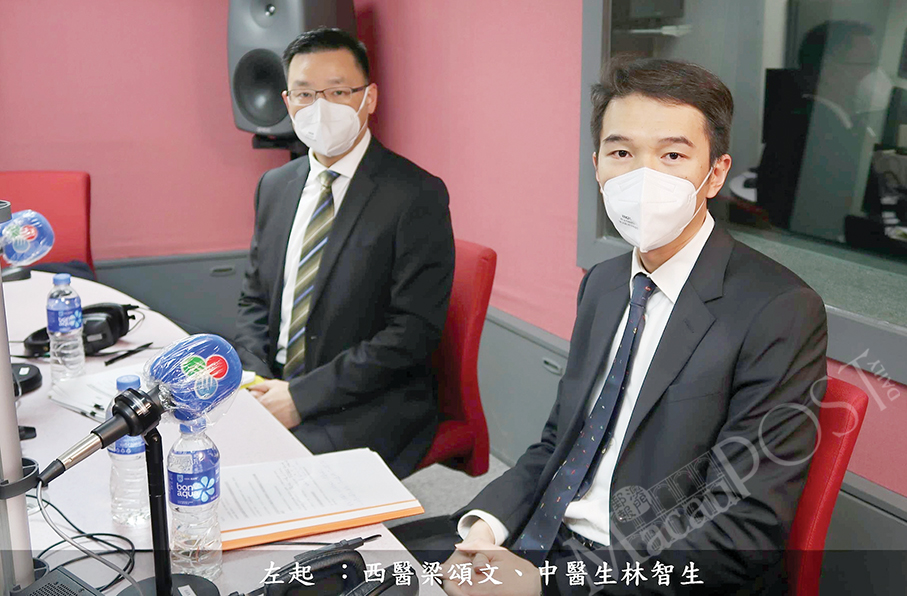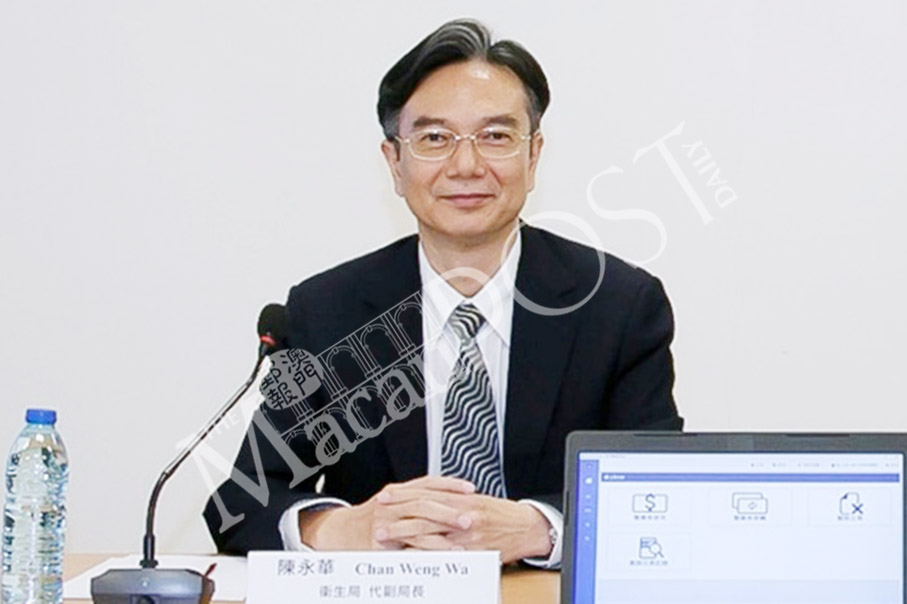Conde de São Januário Hospital Centre Western-medicine physician Liang Sung Wen said yesterday that people who have been infected with COVID-19 during the current novel coronavirus wave should not be overly worried about being infected with other Omicron variants in the short term, adding that even if they get infected with another variant, their risk of suffering from severe symptoms would be “very low”.
Difference between re-positive & reinfected
People who have recovered from COVID-19 may test re-positive for the disease or be reinfected with it, but the two situations are “fundamentally different”, Liang said, pointing out that the former refers to patients who still have viral residue in their body after self-healing even though the virus is not active anymore, so patients who tested re-positive for COVID-19 are not infectious or symptomatic, and they do not need special treatment if there are no new symptoms. While for the latter, according to Liang, generally speaking, those who have recovered from the novel coronavirus have antibodies against the disease, which makes them immune to various strains of the disease. Although some studies have indicated that the risk of reinfection with COVID-19 is not high within three to six months, Liang stressed that antibody levels will decrease over time.
Avoid strenuous exercise after recovery
As for people who are worried about myocarditis (inflammation of the heart muscle) after recovering from COVID-19, Liang underlined that the virus can cause viral myocarditis, adding people should avoid strenuous exercise such as running, swimming, playing football, and going to the gym for two weeks after recovering from COVID-19, which takes at least one to two weeks of recovery time for people who tested positive again. Instead, he added, they can choose to gradually do mild exercise.
Long COVID-19
Liang noted that the term “long COVID-19” refers to long-term symptoms lasting for up to three months after infection. Although the virus may remain in the body after infection, Liang pointed out, the symptoms will weaken with time.
Lianhua Qingwen Capsules suit those with ‘hot constitution’
Meanwhile, Lam Chi Sang, the public hospital’s traditional Chinese medicine (TCM) practitioner, said yesterday that Lianhua Qingwen Capsules, a TCM formulation that was distributed to the public with an anti-COVID-19 kit last month, was only suitable for people who are strong and with a “hot constitution”, adding that those with symptoms such as a sore throat, yellow phlegm and constipation after infection can take this medicine immediately after a self-diagnosis of COVID-19.
After recovery, according to Lam, as the gastrointestinal function will be affected, the diet for COVID-19 convalescent should not be excessive, and avoid eating “cooling or cold foods”, such as watermelon, cucumber, Chinese cabbage or starfruit, and eat light meals only.
Lam suggested COVID-19 convalescents who often coughed after testing negative for COVID-19 drink tangerine peel water to relieve the cough or take Radix pseudostellariae, aka false starwort and “tai zi shen” (太子參 “crown prince ginseng”) to regulate the body.
Radix Pseudostellariae is used as a tonic in traditional Chinese medicine with immunomodulating and anti-fatigue activities, according to open access journal publisher Hindawi.
Liang and Lam made the remarks when attending a phone-in programme hosted by Ou Mun Tin Toni, the Chinese-language radio channel of public broadcaster TDM.

Public Conde de São Januário Hospital Centre Western-medicine physician Liang Sung Wen (behind) and traditional Chinese Medicine (TCM) practitioner Lam Chi Sang pose during yesterday’s phone-in programme hosted by public broadcaster TDM’s Chinese-language radio station, Ou Mun Tin Toi.
– Photo courtesy of TDM








